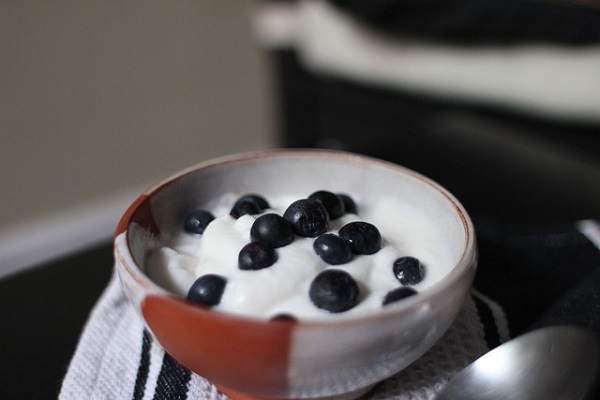Although vaginal yeast infections are incredibly common in women, they often aren’t viewed as a serious health threat. When coupled with stress and job concerns, and a generally discontented life, as they were for twenty-eight-year-old Alison Berlitz, however, they can be a source of intense aggravation.
Alison had been riddled with yeast infections her whole life, plagued by painful and persistent vaginal discomfort, burning, and itching. She began to shy away from sexual intimacy with her boyfriend, straining their already tenuous relationship. Despite a secure job as a hotel industry executive, Alison was frustrated because her true career goal was to be in musical theatre, and her physical discomfort made her days both physically and emotionally difficult. Worst of all, none of the many medications Alison took to eliminate her infections was effective.
When she came to see me, Alison was perplexed and felt defeated by the failure of these drugs, which would relieve her symptoms only temporarily. I explained that most medications zap yeast without introducing healthy bacteria to keep it from reappearing. By taking probiotics, Alison could not only cleanse pathogens, but replenish her system with natural organisms that would work constantly to keep yeast out for good. Because some women seem to have allergies, sensitivities, or other reactions to foods that promote intestinal yeast growth, I put Alison on a special yeast-free diet. All breads, wine, and beer were removed from her menu, plus mouldy foods like cheese, sugars, fermented foods, and carbohydrates. Certainly, this was a severe dietary change for a young woman whose dietary routine included sugary muffins for breakfast and drinks on Friday nights to celebrate the end of a boring workweek.
Alison’s road to recovery was far from easy. Yeast can be tenacious, and effective treatment would take time. For months, Alison’s condition fluctuated between radically better and then worse again. Finally, however, her determination and faith in probiotic supplements paid off. Alison has not had a recurrence of her yeast infection in a whole year — the first time in ten years that she’s been infection free. Not only are her painful symptoms gone, but her quality of life has improved significantly. When she visited my office to inform me that her pain and irritation were gone, I saw her smile for the first time since she’d been my patient. She had smoothed things over with her boyfriend, and her newfound health has left her in better spirits each day — and, gave her energy to go on auditions, so that she could one day leave the hotel for the stage.
Running Out Of Gas
Millions of Americans each year are afflicted with uncomfortable gas and bloating caused by irritable bowel syndrome [IBS]. Unfortunately, how the bowel got so cranky is often a mystery. Was it allergies? Infection? Sensitivity to certain foods? In many cases, such a condition can prove difficult to treat, but the story of Louise Marsden [57], shows that intestinal distress can be relieved naturally and effectively.
When I first met Louise, she’d had a host of medical concerns, including hot flashes and low bone density. Another complaint of hers was seemingly less serious, but still a source of embarrassment to her: halitosis [bad breath]. Thinking this might be the nasty trick of bacteria whose unpleasant by-products can cause bad breath, I took a stool sample to monitor any growth of dangerous microorganisms in her intestine, plus possible overgrowth of yeast, or parasites. Louise came up strongly positive for an overabundance of yeast. I asked her more questions about other symptoms, looking for clues that intestinal dysbiosis [imbalance] was a possible trigger for some of her symptoms.
“Bacteria may have caused your halitosis,” I told her, “but it can also cause other symptoms. Have you experienced any gastrointestinal disorders, like diarrhoea, gas, or bloating?” This poised legal secretary turned a warm shade of crimson. “I do have gas,” she admitted. “It’s pretty bad. I just didn’t mention it, because I was ashamed.” “Well, it’s a good thing you mentioned it, because now we can correct it,” I said.
One of the most common causes of gas and bloating is too much bacteria lining the gut. Bacteria and yeast emit carbon dioxide and methane gas as natural by-products of respiration. Luckily, there are a number of natural remedies with antibacterial effects to reduce these embarrassing symptoms.
Furthermore, I learned that she had been ingesting high doses of fibre because she thought it was good for her. While fibre is a necessary ingredient in any diet, it can also promote gas because it stimulates the growth of good bacteria, and even good bacteria pass gas.
I recommended the following substances for Louise: garlic, caprylic acid [grapefruit extract], and goldenseal. I also prescribed a wide range of healthy replacement bacteria to cleanse her gastrointestinal tract, including Lactobacillus acidophilus and Bifidobacterium bifidum. An anti-yeast diet would also go a long way towards alleviating her symptoms. Not only did I ask her to ‘junk’ the junk-food she guiltily loved to eat, but I recommended that she eat yogurt regularly and I lowered her fibre intake.
During the first week of treatment, Louise’s gas and bad breath persisted. As the weeks went on, however, and she learned to enjoy yogurt and yeast-free foods, she noticed that she felt much healthier and her mouth felt fresher. Free of the tyranny of her uncomfortable symptoms, she also felt like a new woman.

